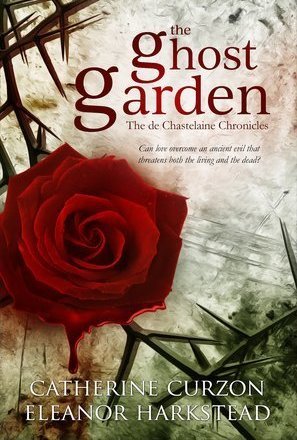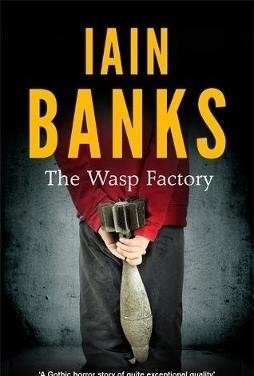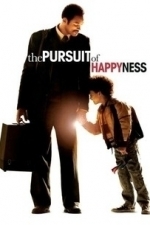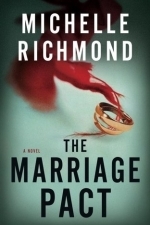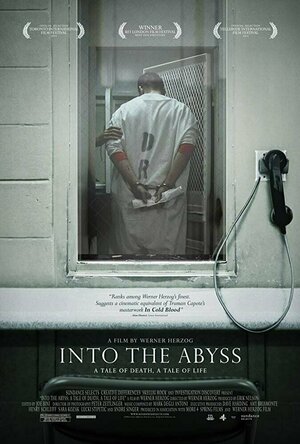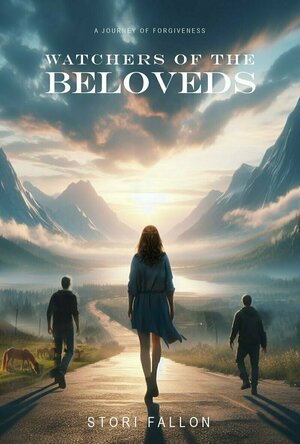
Watchers of the Beloveds: Journey of Forgiveness
Book
In the modern world, where the celestial and mortal realms converge, a tale of forbidden love and...
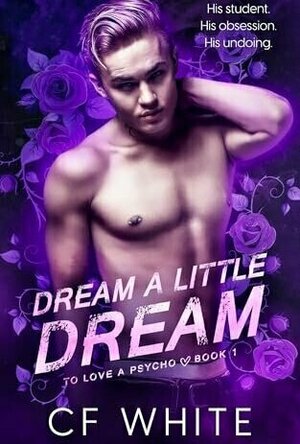
Dream a Little Dream (To Love a Psycho #1)
Book
His student. His obsession. His undoing. “Aaron Jones was a spark in the dark. Beautiful....
Dark MM Romance Contemporary Psychological Thriller
Merissa (13765 KP) rated The Ghost Garden (The de Chastelaine Chronicles #1) in Books
Apr 23, 2019
Set in an isolated school with a bully of a headmaster, and a meek and mild wife, this story immediately shows you there is more the Cecily than being 'Mrs Headmaster'. She has endured and survived, but not it is her time to thrive... although that doesn't happen without plenty of danger. I loved her acts of rebellion, small as they may seem, but you have to comprehend what she was living with. Those acts, however small, gave her the strength and courage to continue.
And then along comes Raf - blue-eyes and mischievous, infusing life back into the school and into Cecily herself. He is a friend first, never pushing for more. I loved hearing about his past as the story progressed. Their relationship had a naivety, an innocence, to it that was perfect. For all she was a married woman, Cecily was most certainly innocent in the ways of love, although Raf was more than happy to help out!
Mystery and intrigue wrap around this romance, giving you a fantastic read from a time gone by. I have never wanted for two couples (yes, you read that right) to get their HEA more than I did the characters in this book. One couple, I hope, has a peaceful time, whilst for Raf and Cecily, I hope for plenty more adventures to come.
A stunning novel that I heartily recommend!!!
* A copy of this book was provided to me with no requirements for a review. I voluntarily read this book, and the comments here are my honest opinion. *
Merissa
Archaeolibrarian - I Dig Good Books!
Kaz (232 KP) rated The Wasp Factory in Books
May 15, 2019
This story is told by Frank, a 16 year old boy, who lives on a remote island in Scotland with his father. This is about Frank, his very dysfunctional family and trying to find his brother, who has escaped from a mental institution.
What I love about this book is the way in which Iain Banks writes characters. Frank is such a complex character that, although in essence he is an evil person, there are flashes of innocence and sensitivity about him, that you can't help but like him. One moment you feel like he is the only reasonable member of his family and then gradually, you realize his true character. Despite that, you feel sorry for Frank and the life that he has grown up in and the next, completely horrified by some of the things he does in the novel. He's not just a bad character, which in turn, makes him all the more believable.
I also liked some of the dark humour in this novel. Some of the more disturbing stories of Frank's family history were told in such a way, as to make them funny. I felt guilty for laughing at times, but I couldn't help it!
Away from the story itself, I liked how the novel comments on human nature's need for power and to overpower others. This idea is relevant in the areas of gender, politics and society.
This novel isn't plot driven, but character driven, so the story was a bit slow at times. However, I was not expecting the twist at the end.
This might not be for everyone, because it is so dark and at times, really intense. However, I thought this was a brilliant first read for 2019.
I would give this 5 starts, but I have to knock a point off, because this book dragged a couple of times.
Phillip McSween (751 KP) rated The Pursuit of Happyness (2006) in Movies
Jan 29, 2018
Chris Gardner (Will Smith) is just trying to make money and take care of his family. After investing his entire life savings in a company that goes nowhere, he decides to risk it all and go out for an unpaid internship with a stockbroking company. The message here is extremely powerful, a message he delivers to his son about halfway through the film: If you want something, go get it. And, in the process of getting it, don't let anyone tell you that you can't have it.
The film revolves Gardner's struggle to work for no pay and still manage to take care of his son. You can't help but admire his hustle. Despite numerous shortcomings and failed attempts, he continues to push toward his vision. It's inspiration at its finest. And, just as people warned me, it's also heartbreaking to watch. I mean, the guy can't seem to catch a break. Ever. He takes a step forward then eight back. I appreciated the film being delivered in this fashion because of how real it felt. I never got the sense of sugarcoating. This man was broken, yet he found a way to piece himself back together.
I would be remiss if I didn't mention Jaden Smith's performance as Chris jr. He carries the innocence and sadness of a kid that's a victim of a situation he doesn't seem to fully understand. While it's heartbreaking to see them struggle, it's heartwarming to watch them struggle together.
My one complaint would be the movie ending a bit too abruptly for my taste. Other than that, what a great film! I give it a 92.
Micky Barnard (542 KP) rated The Marriage Pact in Books
Dec 12, 2018 (Updated Dec 13, 2018)
Jake and Alice are an opposites attract kind of couple but a match that seems to work. As very newly-weds they’re invited to join The Pact. Alarm bells should have been ringing at 100 decibels but no, Jake and Alice signed up. There was an innocence about their walk into married life, believing the easy road but it was oh, so different. What ensued took my breath away as I got deeper and deeper. I read going to sleep but found myself pumped full of adrenaline and unsettled. The twisty dark nature was unexpected and not in my normal taste, but I couldn’t look away.
It isn’t a perfect read, there are occasional moments of ‘as if’ and the end could have been stronger but I know I am not going to forget this book in a hurry. I enjoyed it, my skin crawled with discomfort and unease, but I enjoyed it. The characters connected with one another and to me, the writing was like a magnet. The storyline was out of the box and I am definitely wanting to try this author again.
So, if you fancy the unusual, you like the bizarre, suspense and married couples, I give you THE MARRIAGE PACT.
A copy of this book was provided by the publisher through netgalley in return for a honest review.
JT (287 KP) rated Into The Abyss (2011) in Movies
Mar 10, 2020
Using actual footage of the crime scenes which is disturbing enough, Herzog also draws on the real life interviews of those involved and how it has affected their lives. It also explains to us what causes a person to commit murder, and if taking a life for a life really is worth it in the long run.
What is the most shocking with this film is the complete lack of remorse both inmates have. Michael Perry the condemned, man is courteous and polite in his responses as he sits looking through the perspex glass that separates him from Herzog.
As Herzog states at their first meeting he doesn’t particularly like him but he has respect for him, more than likely due in part to the honestly of his answers and how he’s dealing with certain death. The other is Jason Burkett, sentenced to life for his part in the crime, he won’t get out until much past sixty-five, a terrifying prospect when you’re only in your twenties.
Burkett still tries to command a normal life, married to someone on the outside who he rarely gets to touch physically they have a child on the way, although the conception is kept a closely guarded secret, despite advances to find out by Herzog. Both men have always blamed the other and both claimed their innocence.
The film is broken down into chapters, opening with a somber account of life and death from The Reverend Richard Lopez, the man that holds the hand of those sent to death, for their final walk into the unknown. It then quickly moves to an in-depth look at the murders, the how, the why and the where? This all makes for an impactul watch.
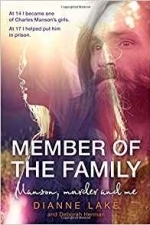
Member of the Family: Manson, Murder and Me
Book
Following the recent death of Charles Manson – the leader of the sinister 60s cult – Dianne Lake...
biography crime
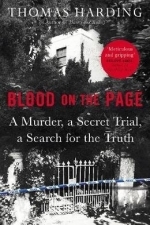
Blood on the Page
Book
'Meticulous and gripping' Philippe Sands, author of East West Street A groundbreaking examination of...
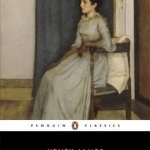
Washington Square
Henry James, Philip Horne and Martha Banta
Book
Henry James's classic tale of romance in urban nineteenth-century America, Washington Square is...
